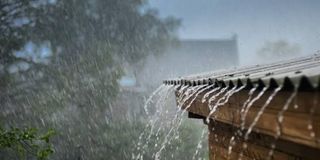Rainy season will be a mixed bag this year, TMA cautions

What you need to know:
- The weatherman said yesterday the Lake and Northern zones should brace themselves for the possibility of below-average rainfall, while some areas of the Eastern Zone could get unusually heavy rains
Dar es Salaam. The rainy season, which begins next month, will be a mixed bag of fortunes for places that receive little rain and those that receive enough, according to the Tanzania Meteorological Authority (TMA).
In its latest forecast, the TMA yesterday urged residents of the lake and northern zones to put in place procedures for proper water use for their varied domestic and economic endeavours because their areas are expected to get normal to below-average rains.
The TMA predicts that the northern part of Kigoma and the lake zone (Kagera, Geita, Mwanza, Shinyanga, Simiyu, and Mara) will get normal to below-average rainfall during the rainy season, which begins in the middle of March.
A similar situation, the TMA acting director general, Mr Ladislausi Changa said yesterday, should be expected in the northern zone regions of Kilimanjaro Arusha, Manyara and Tanga regions.
The below-average rains are expected to affect, among others, those who engage in agriculture, livestock and fisheries, tourism, and the delivery of health services.
“Areas expected to feature few and uneven distributions of rains will likely experience insufficient soil moisture and water availability for agricultural activities,” Mr Changa said when presenting its advisories, which it jointly developed with experts from respective sectors.
As for the livestock and fisheries sectors, he said that despite below-normal rains, water and pasture availability for livestock and food availability for fish are expected to be normal.
However, in the situation of below-normal rains during the season, water and pasture availability for livestock and fishery activities are likely to be affected, thus leading to a possible increase in wildlife migration, which may in turn increase human-wildlife conflicts and associated disease transmission from wildlife to livestock.
He advised livestock keepers to practise good animal husbandry, such as rational grazing, in order to conserve pastures and harvest rainwater for future use.
“The community is urged to implement sound strategies for the usage and conservation of food and water. In addition, pastoralists are advised to use weather forecast updates and adhere to the advice provided by extension officers in order to minimise any possible adverse impact,” he said.
In terms of tourism, the below-average rainfall forecast in some regions are likely to lead to a shortage of water and pasture, which could encourage wildlife to migrate to settlements near game reserves and parks in search of water and pasture. This situation is likely to cause sickness to spread from wild animals to domestic animals.
Mr Changa advised the authorities to improve the various infrastructures in the wildlife reserves and raise community awareness to implement the necessary measures. Hence, if wildlife penetrates residential areas, the community is recommended to alert the appropriate authorities.
On health, normal to below-average rains during the season may lead to limited access to clean and safe water which may cause water-related diseases outbreak.
The health authorities are advised to take appropriate measures to reduce the possible effects, including encouraging citizens to treat water before using it and to drink clean and safe water.
However, residents of Dar es Salaam, the Coast, Zanzibar and some parts of Morogoro should brace themselves for some days of above-normal rains, which could have some impacts on transport and water there are also chances of the potential occurrence of extreme weather events that are expected to affect transport and infrastructure.
The community is also advised to take action by ensuring the cleanliness of the surrounding environment, destroying mosquito breeding grounds, and maintaining cleanliness in general. In areas where normal to above-normal rains are expected, stagnant surface water and uncontrolled sewage discharge may cause water contamination and trigger disease outbreaks such as vector and water-borne diseases.



